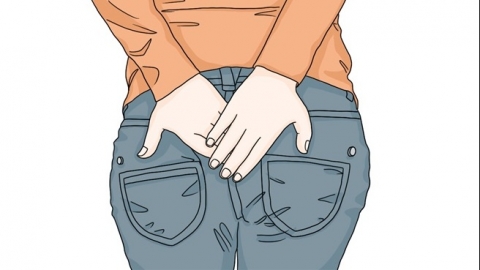What are the symptoms of anorectal polyps?
Generally, anal and rectal polyps—elevated lesions protruding into the intestinal lumen from the rectal mucosa—commonly present symptoms such as rectal bleeding, polyp prolapse, local irritation, changes in bowel habits, and mucus in stool. A detailed analysis is as follows:

1. Rectal bleeding: This is one of the most common symptoms of anal and rectal polyps. It typically appears as bright red blood on the surface of the stool, not mixed with feces, and usually does not involve dripping or jet-like bleeding. The bleeding is generally mild and results from friction-induced mucosal damage to the polyp surface during defecation.
2. Polyp prolapse: Larger or lower-positioned anal and rectal polyps may protrude through the anus during bowel movements. The prolapsed polyps are usually round or oval, soft in texture, and may spontaneously retract after defecation in the early stages.
3. Local irritation: Polyps can irritate the rectal mucosa or surrounding anal tissues, causing local discomfort such as a sensation of anal fullness or heaviness, tenesmus (a frequent urge to defecate despite little or no stool being passed), and in some cases, mild anal itching or dull pain.
4. Changes in bowel habits: Anal and rectal polyps may disrupt normal bowel patterns, leading to altered bowel habits. Some patients experience increased frequency of bowel movements or occasional diarrhea; others may develop constipation, or alternating episodes of diarrhea and constipation.
5. Mucus in stool: Some patients pass mucus along with their stool—either coating the stool surface or discharged as small amounts separately after defecation. This occurs due to increased mucus secretion from the rectal mucosa stimulated by the polyp, which is then expelled together with feces through intestinal peristalsis.
If any of the above symptoms occur, prompt medical evaluation is recommended for accurate diagnosis. Daily management includes maintaining good anal hygiene, avoiding prolonged sitting, increasing dietary fiber intake, and reducing consumption of spicy and irritating foods to support overall bowel health.




